|
Current Nebraska law discriminates against students who are not served well by the public school system. Other states are recognizing that in order to best serve K-12 students, the students need to be funded equally, regardless of their abilities, interests, and challenges. For instance, in Colorado, Republicans Lang Sias and Owen Hill and Democrats Brittany Pettersen and Angela Williams sponsored a bill that provides equal funding for charter schools. Senator Angela Williams said that the measure “first and foremost provides equitable funding for all Colorado’s children no matter what type of school they attend.” Did you catch that? The funding is for the children. For the children. If a state values each of its citizens equally, it only makes sense that each student would be equally supported in his or her education. And yet, in Nebraska, only the students who fit in at certain schools are supported in their educations. Most states are now offering equal funding to children who learn best in public charter schools. In Nebraska, we don’t even have poor funding for children who learn best in public charter schools. Those kids get no funding at all. I was making phone calls recently to talk to Nebraskans about education opportunity, and one mother shared a heartbreaking story. She has two young adult sons who have both graduated from high school. They’re highly intelligent (the one who was tested has an IQ of 145), but they never quite fit in at their local public schools. They sometimes had trouble focusing, and they were restless with the curriculum. This mother noticed that her friends who were employed by the education system seemed to know how to get their children what they needed. They knew which strings to pull to get their children into certain programs. She asked lots of questions but never received helpful answers, and she grew increasingly frustrated as the years went by. Her sons both lost interest in school because their needs weren’t being met. One of them is now working at Home Depot and the other isn’t sure what to do with his life. “The world is deprived of some great minds,” this mother said to me, “because I couldn’t get them the educations they needed.” More specifically, Nebraska is deprived of those great minds. I asked this mother what would have been helpful to her when her kids were younger. She said she needed more options, and she needed information about how to navigate a system that seemed confusing and not concerned about her children’s specific needs. Nebraska’s traditional public schools work very well for some children. But they don’t work for everyone. And these children should not be consigned to a limited future just because some people think everyone should learn the same way. That’s discrimination. As it stands today, there are tens of thousands of children in Nebraska who are being educated outside the public school system. For many different reasons, their parents have decided that their children need to be taught in a different manner. There are other parents whose children are currently in the public school system even though it's not a good fit for them--and many of these children are not thriving. The woman I talked to on the phone is not the only mother in Nebraska who borders on tears when she talks about her frustrations regarding her kids’ educations. This is what happens when systems are more important than people. People get lost and forgotten. At this point, the teachers’ unions and Stand for Schools are actually testifying against tax-credit scholarships, which don’t take a single penny away from Nebraska K-12 funding since they’re funded by private donations (although from the rhetoric you'd think private school administrators were raiding the public school funds). These people feel so threatened by any sort of competition that they are trying to prevent low-income children from receiving scholarships to go to private schools. They’re the people blocking the doors of opportunity for kids in Nebraska. I wish they would listen to the stories I’ve heard from frustrated Nebraska moms and dads. We’re very far behind the rest of the country when it comes to offering equal support to all of the children in our state. Hopefully, we can begin taking meaningful steps to end this discrimination.
We'd do well to remember what Democratic State Senator Angela Williams so wisely said: we need to provide "equitable funding for all [Nebraska's] children no matter what type of school they attend."
0 Comments
With Nebraska School Choice Week in the spotlight, people are talking. Many of these conversations are interesting and productive, but unfortunately, racist remarks surface as well. One Facebook commenter said, “Charter schools are not public schools by the way. There is little if any over site [sic] and just because you throw in a picture of some black kids does not mean those schools are better than public education.” Comments like these unveil racist attitudes that help to explain why Nebraska has one of the largest achievement gaps in the nation. Such comments attempt to squash the voices of certain students and their parents and treat them as if their opinions don’t matter. Why were so many minority students at the Capitol on Thursday? The following tables help to explain. Clearly, Nebraska’s public schools struggle to successfully educate minority children. That’s one reason that parents of minority children have sought other options. Unlike parents in most other states, however, Nebraska parents have few, if any, alternatives to traditional public schools.
This is because the education establishment has clamped down on educational freedom. They have spread lies about public charter schools, tax-credit scholarships, private schools, vouchers, and other forms of school choice because they want to retain all of the taxpayer funding and power for themselves, even if that means some students get lost along the way. They outright reject forms of education--such as public charter schools--that have narrowed the achievement gap in other states. This is systemic racism. The Nebraska education system (district administrators, the state board of education, teachers’ union leadership, and even district board members) actually lobbies against the legalization of forms of education that are proven to help minority students. In a 2016 address to the American Federation for Children, Senator Cory Booker (D-NJ) touted the fact that over 40 percent of the kids in Newark were attending charter schools. He said, “So for me, this is not an academic discussion anymore. This, to me, is families that I know, neighborhoods. I’ve seen the kind of transformation that could be made. I see how kids who have no history of college in their families suddenly had the arc of their families’ trajectory changed, as they’ve been liberated from what I call the imprisonment of institutions of failure, and now have pathways to institutions of excellence, all the way through college.” “We all have rights to equal opportunity. We are the last generation, fighting the last big battle to make true on that -- that a child born anywhere in America, from any parents, a child no matter what their race or religion or socio-economic status should have that pathway, should have that equal opportunity, and there is nothing more fundamental to that than education. That is the great liberation.” The Nebraska Loves Public Schools crowd isn’t interested in the great liberation. In response to dismal ACT scores in Omaha Public Schools, another Facebook poster said, “Do you think all kids in OPS are college bound?” There’s a lot packed behind this statement: low expectations, excuses, and a lack of concern for students as individuals, to start with. So let’s take it a bit farther. It’s up to each graduate to decide what to do with his or her future, but it’s a travesty that nearly all of the students at some Nebraska high schools will have to pay for remedial college courses out of their own pockets if they’re going to move on to higher education. That is a huge stumbling block to overcome, and many families simply will not be able to afford to pay for what the public schools were tasked (and paid) to do. So do we think that all kids in OPS are college bound? Of course not. Do we think that all kids in OPS should be prepared to handle entry level college courses if that’s the course they pursue? Absolutely. Low-income, minority students at schools in other states can do it. Nebraska kids have as much potential as kids in other states. They just don’t have the freedom to choose schools that will respect their potential. Former NYC City Council Democrat Eva Moskowitz said this week, “Currently, more than 3 million children attend public charter schools in the U.S. They serve a greater percentage of poor minority students than traditional public schools, and the empirical evidence of more than a dozen gold-standard studies indicates they are producing significant academic gains for these students.” But the Nebraska education establishment wants to bar these opportunities from students in our great state. It’s time for our state legislators to stand up for those children whose voices were heard in the Capitol this week. It’s time to offer them the “great liberation” that children around the country are already experiencing. Reject the racism of a system that fights tooth and nail to keep their promising futures trapped in what Senator Cory Booker calls “the imprisonment of institutions of failure.” Yes, we’re many years behind when it comes to education reform, but we can begin the journey toward equity and liberation during this legislative session by passing LB295, which would offer low-income students a way to access schools they could never have accessed before. Will Nebraska continue to shore up its education bureaucracy's tremendous power in 2018? Or will it choose to put the power over children’s futures back in the hands of their parents, where it belongs. School Choice Lincoln Responds to Falsehoods and Mischaracterizations in Faculty "Open Letter"12/1/2017 On November 27, 2017, the Lincoln Journal Star published an open letter signed by nearly 70 faculty of the University of Nebraska Lincoln. In this letter, faculty members make false statements about our organization and seem to entirely miss the point of the many recent concerns expressed by members of the community. This letter addresses both the false statements and the real issues at hand.
December 1, 2017
To Whom It May Concern, In “An Open Letter from University of Nebraska Faculty on Recent Attacks on Our Institution,” School Choice Lincoln was charged with “leverag[ing] a single campus interaction into a sustained attack on the University.” We would like to address the false statements about our organization and express our true concerns. First of all, the letter alleges that “staff of anti-public-education nonprofits affiliated with Governor Ricketts, such as School Choice Lincoln, have leveraged [attacks against the university].” Our organization is not a non-profit, nor does it have staff. We are also not “anti-public-education.” Our own children currently attend or have attended public schools here in Lincoln. We are not affiliated with Governor Ricketts. We are simply an unfunded, grassroots group of parents and concerned citizens who advocate for expanding educational options, improving current educational options, and increasing transparency so parents are better able to make decisions regarding their children’s educations. We focus most of our efforts on K-12 issues like reading proficiency and expanded educational options, but we occasionally comment on other issues, as individuals and as a group. Many members of the community have commented about the issues addressed in the Open Letter; we’re not sure why we have been singled out and named as “attackers.” And we’re also not sure how pointing out a problem that needs attention could be considered “an attack.” How can improvements be made if no one is willing to identify problems? It may be helpful if we connect the dots between our work with K-12 education and our concerns regarding the University, specifically the English Department. In the past few years we have noticed changes in our high school students’ LPS English educations. Some of the teachers, especially the more recent college graduates, seem unusually focused on social justice. Students receive less instruction in classic literature and grammar and more instruction about identity politics and other social justice priorities. While there may be nothing inherently wrong with learning about social justice, it appears that essential academic skills like reading, writing, and critical thinking are being replaced by the teaching of political ideas and theories in required English classes. This substitution leaves students with gaping holes in their educations and a leftist ideological bent. Why should English curriculum be delivered with any sort of ideology? When UNL English instructors caused a scene on campus earlier this fall, we took a closer look at what was going on in the department. The department’s mission statement and core values line up perfectly with the changes we have noticed in our kids’ high school English classes. This makes perfect sense: many of the LPS high school English teachers are graduates of the UNL English Department. As parents, we feel it’s our duty to advocate for quality education for our children, and that’s why we have made comments (at times; not in a “sustained” manner as described in the letter) on social media regarding our concerns. More than anything, we want every department at the University of Nebraska to be strong, vibrant, and productive. We know that our community and our children depend on the strength of the University, and that’s why we care so much about it. We are not a non-profit with staff conspiring with politicians to attack the University of Nebraska, as imagined by the English Department. We are concerned citizens who love our children and our community and want all of Nebraska’s students to have a solid academic foundation. How else will our young people compete in this ever-changing global economy? We, the undersigned, fully support the University in its mission “to provide its citizens with the highest quality of post-secondary education.” Like many others who have vocalized concerns, we are invested members of the community who simply want the University to hold high standards for academics and to respect students in all their viewpoint diversity. Thank you for your time. Sincerely,
For a printable pdf of School Choice Lincoln's Open Letter Response, click here.
If you have any trouble with the Google Form, send us a message on the School Choice Lincoln Facebook page. We can manually enter your name and title. Thanks! Jane Raybould is irked. At least, that’s what she says in a recent campaign email sent to Nebraskans (see below).
Full of falsehoods, this email claims that there is an “ideological crusade against our education system” and a “national war on our public schools.” She says that she’s very proud of Nebraska’s public schools, and maybe that’s why she thinks all children should be forced to attend them. Recent testing data has shown us that parents have cause to be concerned about their children’s educations. About half of 3rd through 8th graders scored proficient or above on the latest statewide standardized tests. Only half are proficient in reading? If ever there were a call for reform, this is it. And yet, here we have politicians like Jane Raybould lamenting not the fact that many children are functionally illiterate but the fact that reformers are asking good questions and making recommendations for improvements. Raybould’s email is long on scare tactics and short on specifics. She vaguely mentions three bills in the legislature that she doesn’t like, but she doesn’t say what they are. Is she referring to LB 295 about tax-credit scholarships, which offers tax credits to individuals and businesses who donate money to scholarship funds for K-12 students who need scholarships to attend private schools? Public school funding is not touched by this program, but many students’ lives could be changed for the better. Ms. Raybould herself, who attended private Catholic school growing up, was a beneficiary of educational options. It's hard to understand why she would oppose a program that would allow low-income students to access the same options she herself enjoyed as a child. Raybould isn’t the only person who is feeling irked. Here are a few other groups of people who are currently irked in Nebraska:
Not only are kids unique in their gifts and challenges, but they may also need different educational options at different points in their growing up years. When parents have many options to choose from, they’re more likely to find schools and resources to help their kids achieve their goals. That was certainly the case for Makila Carter. When Makila was a 15-year-old sophomore in Madison, Wisconsin, her father passed away from lung cancer. At the time, she was attending a huge school (there were 1500 students in her freshman class). Makila said, “I had become dissociated from everyone and everything because I was just expected to go back to [a] huge school with thousands of other kids and present as if everything was ok in my life. No one asked if I was ok. My teachers weren’t engaging. Everyone just thought I had missed a lot of school that current semester and probably wouldn’t catch up. I came home that day and I told my mom that if I had to go back there I didn’t know what I would do.” Makila’s interest in learning was dwindling quickly. Fortunately, Makila’s mother knew about a school that fit her daughter’s current needs: Shabazz City High School. Makila’s mother had been a student at Shabazz in the 60’s, and she thought it would be just the thing to rekindle Makila’s interest in life and learning. One of the things Makila loved about Shabazz was that she had to apply, interview, and be accepted to the school. “If you were a bad apple or didn’t want to learn they didn’t want you there. Loved that,” she said. “Every kid that was there was there because they wanted to be and we were all in this together to make it through high school with the necessary tools to become high-functioning adults. A lot of my former classmates went to 4-year colleges and universities.” It sounds great, but what what makes Malcolm Shabazz City High School so different from the school Makila previously attended? For one, Shabazz is much, much smaller. The school currently has 135 students. Its website says, “Shabazz is a choice alternative school. All of its 135 students choose to attend Shabazz--no one is forced to go to Shabazz.” When asked to describe Shabazz, Makila said that it made her feel happy. “We were equals to the teachers, they allowed us to call them by their first names. A lot of the teachers who were there had been there for many years. My history teacher Jeff (his last name escapes me) was a student teacher when my mom was a student there. My mother spoke of him fondly. He remembered her too. They taught us in a way to make everything relevant.”
Unconventional teaching and hands-on learning are several of the hallmarks of Shabazz. Makila said, “We had a history class called the Life and Times of Bob Dylan. History class was started every day with a song from Dylan and we would have to try and decode the song and pair it to what was happening in that moment in time. Everything was outside of the box. There was another teacher who taught women’s history classes. Classes often started or ended with a debate. Everyone took a lot of notes, but it was because the teachers cared enough to give a different way to teach.” On Malcolm Shabazz City High School’s student-created website, you can read about Shabazz/Community Service-Learning Partnerships. These are service projects that Shabazz students and staff work on to help their community. They include art projects, poetry guilds, journalism projects with Wisconsin Public Radio, games with elementary students, trail repair for the local arboretum, voter registration canvassing, and rebuilding computers for families who can’t afford to purchase one on their own. Makila said, “I took a cinematography class and an elective class where I learned to build computers and we would fix the computers in the school.” This kind of hands-on, real-world experience instills confidence in students and helps them to discover skills and interests they didn’t know they had. When asked about how her life would be different now if her mother hadn’t exercised her right to choose her school, Makila said, “I don’t want to think about where I would be. It wouldn’t have ended well for me if I didn’t find a place to feel safe like I did at Shabazz. My mother, who went to the same school decades earlier, probably wouldn’t have completed school either.” Makila noted that Shabazz is arts-based, and she is artistic herself. That’s part of what made it such a great fit for her. “Not every child learns the same way,” she said. “Everything we did was linked to some type of artistic outlet. I feel like that helped us absorb more.” Is Shabazz City High School the best place for every student to attend high school? Of course not. Other students have different interests, learning styles, and desires. But it was a perfect fit for Makila and her classmates. When a variety of schools are available, more students will find a place that feels like home, and more students will find success like Makila Carter did. Many thanks to Makila for the interview and her insight into educational opportunity. Last week, the Nebraska Commission for the Deaf and Hard of Hearing issued a press release in which they question comments made in the wake of a visit from the U.S. Secretary of Education. In particular, the press release quotes LPS superintendent Steve Joel as saying, "Nebraska is a choice state. Students can attend any school they want to -- and do."
The NCDHH knows this isn't true. Members of the task force have attended IEP meetings in which parents with children who are deaf or hard of hearing have requested to send their children to a residential school setting at the Iowa School for the Deaf, and they've been told they can't go. In fact, according to the press release, these parents have been "told to utilize the Individuals with Disabilities Act appeals process in an attempt to convince education officials that a residential school setting, or a different school of their choice, is best for their child." The press release asks the question, "If parents have to utilize the due process appeal system to obtain the same right of 'school choice' as children without disabilities, is that true 'choice' after all?" Why don't these parents request to send their children to a school for the deaf or hard of hearing right here in Nebraska? The Nebraska School for the Deaf closed in the 90's, and nothing has replaced it. If a family with a deaf or hard of hearing child lived in St. Paul, the child could attend Metro Deaf School, a free public charter school providing a bilingual and interdisciplinary curriculum. Parents living in Florida could use a tax-credit scholarship to send their deaf or hard of hearing child to Blossom Montessori School for the Deaf, a private school that uses a combination of Montessori-style teaching and visually oriented curriculum. Parents in Arizona can use an ESA (Education Savings Account) to pay for tuition for schools for the deaf or hard or hearing as well as for private tutors, therapies, and other services their children need. So it's no wonder that parents are leaving Nebraska in order to access the educational resources their children need. Children in Nebraska do not have access to any of the opportunities mentioned above, and that's why Nebraska is ranked #50 in the Parent Power Index. Until this upcoming session, Nebraska legislators have not even been willing to discuss expanding educational opportunity for children in this state. Instead, education reform bills have been stopped in committee by senators who are beholden to the teachers union, district administrators, Nebraska Loves Public Schools, Stand for Schools, and other organizations that are more concerned about maintaining control over systems than they are about providing opportunities for individual children to succeed. The NCDHH is a state agency with 13 employees and 9 board members. They have offices in Lincoln, Omaha, North Platte, and other locations. They hear the stories of children across the state, and they know what they're talking about. In their recent press release, the NCDHH board states that parents have been denied requests to send their children to the Iowa School for the Deaf because "their current school provides a better choice." This attitude that administrators know better than parents is the reason families are leaving Nebraska in search of freedom and better opportunities for their children. Nebraska legislators have a chance this upcoming session to offer meaningful opportunities for the parents and children of this state. They can approve LB295, a measure that would offer tax credits to individuals or organizations that contribute to K-12 scholarship funds. With a scholarship, perhaps some of these parents referenced by the NCDHH could afford to send their children to schools that offer the opportunities they're looking for. NCDHH Board Chairman and retired educator at the New Mexico School for the Deaf Margie Propp said, "It is time for the deaf or hard of hearing children to have the same right to choose a school the same as their hearing peers." FOR IMMEDIATE RELEASE: October 10, 2017
CONTACT: John Rich, [email protected] AFP-NE Reacts To Disappointing NeSA Results, Calls For Reform Organization Calls Out Commissioner Blomstedt for Friday Afternoon Release Lincoln, NE – Americans for Prosperity (AFP) - Nebraska has renewed its call for more education opportunities in Nebraska after the Education Commissioner, Dr. Matt Blomstedt, and the Nebraska Department of Education (NDE) released shocking data about the state of education in Nebraska. The 2017 Nebraska State Assessment preliminary results, which were released on a Friday before a holiday weekend in an attempt to bury the disappointing news, indicated barely half of Nebraska's 3rd through 8th grade students are proficient in English Language Arts. It is also not clear where, or if, the NDE has posted the preliminary results since the press conference. “These disappointing results should serve as a wake-up call to all Nebraskans on the state of our education system," said AFP-Nebraska State Director Matt Litt. "Not even a month ago Commissioner Blomstedt told the media that Nebraska is close to having the greatest education system in the world. By releasing this information on a Friday afternoon before a holiday weekend, it's clear the Commissioner sought to stall that discussion instead of promote an honest dialogue about the quality of education provided in Nebraska." Litt continued, "In light of Friday's data dump, Nebraskans want to know how we ensure our kids improve. Maintaining the status quo and spending more money will not work - other states have tried unsuccessfully. We need to implement reforms and expand education opportunity." Litt concluded, “AFP will continue calling on the Nebraska Legislature to prioritize the Nebraska Reading Improvement Act and to implement a school grading system so families know if they are at a high-quality school. We’ll also continue our call for expanding education opportunities for all Nebraska students.” Background: Last month, Education Secretary Betsy DeVos toured four schools throughout Nebraska on her “Rethink School” tour. In a press conference following the visit, Dr. Bloomstedt remarked Nebraska already had one of the greatest education systems in the world (approximately 9:45 min. mark). For further information or an interview, reach Matt Litt at [email protected] Americans for Prosperity (AFP) exists to recruit, educate, and mobilize citizens in support of the policies and goals of a free society at the local, state, and federal level, helping every American live their dream – especially the least fortunate. AFP has more than 3.2 million activists across the nation, a local infrastructure that includes 36 state chapters, and has received financial support from more than 100,000 Americans in all 50 states. For more information, visit www.AmericansForProsperity.org ### It’s clear now why Nebraska’s low-income and minority children are struggling academically while their white and Asian counterparts are maintaining respectable levels of achievement. Nebraska’s education establishment is utterly unwilling to discuss the kinds of innovations that are closing and even reversing the achievement gap in other parts of the country. Nothing could be more illustrative than these adults’ reactions to a visit from Education Secretary Betsy DeVos this week. A strong advocate and benefactor of education reform for the past three decades, Betsy DeVos knows a thing or two about trailblazing for underprivileged children. She champions many forms of school choice, including charter schools, that have found innovative solutions to the very problems we're grappling with. Just this past month we learned that black and Hispanic students in Central Harlem charter schools are outperforming New York City’s white pupils by double digits. You would think that Nebraska’s educators would be curious about how we can use some of these ideas to help our own struggling black and Hispanic students. After all, only 22% of black students and 18% of Hispanic students in Nebraska are proficient in reading by the 4th grade, according to data from the National Assessment for Educational Progress. Instead of teaching students to be open-minded and forward looking, our education leaders in Nebraska taught kids some very different lessons this week by the way they responded to DeVos’ visit. Here are 5 of those lessons. 1 - People who think differently than you have nothing to offer. According to messaging coming from education leaders in Nebraska, the best way to approach new ideas is not by having an open mind but by “teaching a lesson.” Here’s a screenshot of LPS’s home page today. We’re not sure what’s going on in this picture, but the woman with the lizard looks a bit uncomfortable. LPS has framed this visit as an opportunity to teach Betsy DeVos a lesson. Besides being incredibly rude, this messaging teaches children that if someone disagrees with you, your obligation is to teach them to think like you do. If LPS were teaching critical thinking skills, their students would know that you can listen to or read a wide range of viewpoints without having to adopt any of them. They would also know that learning about diverse viewpoints is enriching and fulfilling. It helps you to understand the world around you and to see other people as complex human beings with experiences you can learn from. Instead, these educators are teaching students to be close-minded and rude. 2 - If you don’t like or understand a person’s ideas, protest and call her names. Strangely, the day after a visit from a U.S. cabinet official and a protest by 150 people, the Lincoln Journal Star has chosen not to include an article about the episode on its home page. If you do a little digging, however, you can find an article that claims that retired teachers, among others, were part of the protest at the zoo yesterday. If anyone should be teaching students to be open-minded and to learn all they can from the world, you’d think retired teachers would. These teachers and other adults at the protest are teaching children to avoid having conversations with people who think differently than they do. The appropriate response, as they demonstrate by their actions, is to hold signs, chant platitudes, and possibly even yell and call the person names. Apparently, this lesson has been taught for some time. Forty-five-year-old Courtney Lawton used a similar strategy recently when she yelled at a 19-year-old undergrad at UNL and called her despicable, slanderous names. The tragedy is that these two women could have had a civil and respectful conversation that could have led to increased understanding on both sides. Whether or not anyone would have been persuaded to change her mind, both would understand her fellow humans a bit more richly. It’s hard to have a conversation, though, when one person starts out with yelling and name calling. 3 - The status quo is always better than innovation because innovation is “unproven.” At a press conference on Wednesday, Superintendent Steve Joel said, “We have to be careful if in fact other concepts that are not proven to yield the kinds of results that we’re getting are being introduced against our will.” There’s a lot to say about this statement. We’ll stick with just two points. We don’t want to continue to get the results we’re getting. We want better results. There are already some options available in Nebraska that are getting better results, and we should make it easier for parents to access these options. The 70+ schools in the Omaha Catholic Archdiocese, for example, are getting much better results for less money. Tax-credit scholarships would make it easier for low-income families to access these schools. Secondly, let's address the "against our will" comment. Education opportunity and school choice are all about freedom. While a superintendent of a large Nebraska school district who makes north of $300,000/year certainly doesn’t want to have to compete with other schools (his will), many parents would like more options for their children (their wills). Whose interests are more important here? High-paid government employees or low-income children whose futures depend on their educations? Do we want to raise a generation of children who are learning that innovation shouldn't be trusted? Is this mind-set going to help them adapt to the ever-changing, fast-paced technological world we’re living in? 4 - “Others” are not human beings with good intentions or feelings. There are many adults in Nebraska who speak of Betsy DeVos as if she weren’t even human. In fact, we’ve seen people post images and gifs of Disney villains when they refer to her. Teaching students that it’s okay to turn fellow human beings into “others” (as referenced by the UNL English Department) limits their capacity to reason and to make connections with the world. The very idea is antithetical to the teaching of Humanities, and it creates mistrust and suspicion. All you have to do is look at the faces of the zoo school students to see that they’ve been indoctrinated well when it comes to viewing Betsy DeVos as an “other.” This is a tragedy because it closes doors and windows to students who will very much need to be open-minded in order to thrive in our increasingly diverse world. The Stanford Humanities Center explains that exploration of the humanities helps us to “learn about the values of different cultures” and ways of thinking, and it’s difficult to see how LPS could possibly teach humanities when it treats some humans with such disdain. 5 - Truth is relative when you need it to be. The double speak surrounding this event has been pretty incredible. Stand for Schools’ Ann Hunter-Pirtle, whose father Pat Hunter-Pirtle happens to supervise the Zoo School focus program, said in a single sentence that Nebraska already has school choice and that school choice is bad because it takes money from public schools. Neither of these seemingly contradictory statements is true or relevant to Secretary DeVos’ visit, but it doesn’t seem to matter. We currently rank #50 on the Opportunity Index (because we don't have school choice), and if more children attended private schools or even public charter schools (which are public), our existing districts would still retain some of that money without having to educate the kids, thus actually increasing funds for district schools. We’ve also seen statements about DeVos wanting to take protections away from rape victims, dismantle public schools, and make it financially impossible for students to attend college. After hearing all of these lies it must have been incredibly confusing for the zoo school students to meet a friendly, sincere woman who wanted to listen to them talk about their goals and experiences. That’s the funny thing about truth. It stays the same, whether or not you want it to exist. Kids eventually find out the truth. Will this discovery cause them to feel betrayed by the adults who repeated the lies? Or will it cause them to further retreat into the lie in order to avoid the discomfort of coming to terms with the truth? People are still grappling with what this whole experience meant to Nebraska and to individuals touched by it. Hopefully, we can spend some time thinking about the people this is all supposed to be about: the kids. It appears that at least one adult managed to stay focused on them during the Secretary’s visit.
The Nebraska State Education Association must be losing members to what they call “‘alternative’ out-of-state orgs.” They’ve been sharing a graphic on social media that includes 20 questions that “should be asked of any professional teachers’ organizations you might consider joining!” This campaign highlights the intellectual contempt with which the union treats its members. Instead of talking to Nebraska teachers like the college-educated professionals they are, the union talks down to its members and superimposes their own interests on the people whose interests they profess to represent. What are these “alternative” orgs referred to? Perhaps they’re referring to organizations like the Association of American Educators (some teachers in Nebraska join the AAE instead of NSEA). AAE is a national organization that offers a variety of benefits to its members such as $2,000,000 in liability insurance (twice as much as NSEA offers its members), legal protection, scholarships and classroom grants, and professional resources. If you look at the AAE website, you’ll notice a quite different tone. They treat their members like the professionals they are. They don’t make silly demands of them or try to scare them into taking a certain political position. Besides better treatment from their professional organization, why would Nebraska teachers join AAE when the NSEA already has their backs? Here are a few reasons: Fairweather Representation The first question Nebraska teachers are instructed to ask on the NSEA’s new graphic is this: “How many teachers have you represented before any Nebraska school board in the last year?” Undoubtedly, NSEA has “represented” teachers before school boards; however, NSEA representatives have also thrown Nebraska teachers under the bus before school boards as well. Here’s an example. In the fall of 2014, several teachers at a Lincoln middle school had concerns about comedian-produced gender spectrum handouts distributed at a teacher training meeting. They didn’t feel that their concerns would be well-received, so they approached students’ parents about addressing the topic at a school board meeting. Were these teachers represented well by the local and state teachers union? Here’s what Jenni Benson, current NSEA president and then-LEA president, had to say at that school board meeting(around the 20:00 mark): “We would like to offer our support for the training being offered to staff that includes the awareness of how to work with transgender students.” In other words, we union leaders don’t care about the concerns of the parents or the teachers who are actually in the classroom with the students. We expect all the teachers to take our position. If the organization was actually interested in “representing” the people they claim to represent, the LEA could have sent someone to the school board meeting to offer a message like this: “We recognize that this is a topic on which honest and intelligent people have many different opinions. We are here to represent our professionals but not to tell them how to think. We do have a concern, however: we don’t think it’s healthy for our teachers or their students to be working and learning in an atmosphere which squashes certain viewpoints and encourages the shaming and bullying of people who hold certain views. It's troubling that these teachers felt they couldn't express their concerns to their employers and may have even feared for their jobs simply for sharing their opinions. We encourage the school district to adopt a policy of academic freedom and to cultivate an atmosphere of respect for diversity of thought (including respect for well-established biological facts).” In summary, board representation by the NEA, NSEA, and LEA is only advantageous for someteachers. Others clearly need an alternative. Discriminatory Suggestions In Jenni Benson’s school board speech mentioned above, she also said, “LEA believes that a diverse society enriches all individuals. Similarities and differences among race, ethnicity, national origin, religion, language, geographic location, gender, sexual orientation, gender identification, age, marital status, physical size, mental ability, occupation, and economic status form the fabric of society. We believe that education should foster the values of appreciation and acceptance of various qualities that pertain to individuals as members of those diverse populations.” The NSEA’s new campaign doesn’t really subscribe to these ideals, however. On Twitter, they’ve suggested that out-of-state orgs make “false promises” and that only a “lifelong Nebraskan” or a “Nebraska attorney” can be helpful to teachers in Nebraska. This sounds an awful lot like discrimination based on “geographic location” and even “national origin.” Is the NSEA suggesting its members discriminate based on these factors? Doesn’t diversity “form the fabric of society”? Disregard for Individual Careers Professionals in all industries look for chances to improve their skills and make clear progress toward their goals. In many cases, this is done by getting a job with a different employer or trying to learn new skills in a different kind of job. In Nebraska, teachers’ careers are stifled by the lack of diverse employers. Teachers can work at traditional public schools or at private schools, but that’s about all we have to offer these professionals. In other states, teachers can also work at public charter schools, online charter schools, and a plethora of innovative new private schools that are springing up in the wake of tax-credit scholarships and education savings accounts. These school choice options offer all kinds of career development tracks that Nebraska teachers don’t have because the groups that supposedly “represent” them fight tooth and nail to maintain the tired old status quo. For example, in a school choice state, a teacher with a young family of her own can teach part-time through an online charter school and stay home with her kids for the first few crucial years. A successful older investment broker could use his college education and years of professional experience to teach economics or accounting at a magnet school, thus giving students amazing access to a rich career of experience while fulfilling his own dream of giving back to society. These scenarios are playing out all over the country--but not in Nebraska. The NSEA is using all of its resources to prevent teachers from having these kinds of opportunities.
It’s All Politics The “20 Questions” infographic put out by NSEA makes their priorities very clear. They don’t get as excited about defending teachers’ rights and providing professional development as they do about “funding,” “full-time lobbyists,” electing “friends of public education” to office, employing Nebraska attorneys, and staffing their “state office.” Some teachers are very committed to the NSEA goals, and that’s totally fine. If you’re a teacher who is into the politics of maintaining the current status quo, then joining the NSEA makes a lot of sense. But don’t buy into the rhetoric that the NSEA and LEA are all about helping you to develop your career. Their goals are to collect more dues and increase their political power. Do You Really Need a Professional Organization? There are alternative organizations out there that can provide you with professional training and resources, liability insurance, and even legal help. But do you really need such an organization? Most college-educated professionals do their jobs just fine without such organizations. If people feel they need liability insurance, they obtain a personal umbrella policy. If they want to learn more about the latest research, they subscribe to trade journals or read up on professional blogs or attend conferences that focus on their specialties. If they need legal advice, they contact an attorney. Don’t let the NSEA talk down to you and convince you that you don’t have what it takes on your own. You’re a teacher! You can negotiate your own salary and form your own opinions. Your thoughts and opinions are just as valuable as anyone else’s. School choice is as good for teachers as it is for students. Just look around the country at the fantastic job opportunities brought to teachers as a result of school choice. Jenni Benson doesn’t have a right to squash your free speech or tell you which viewpoints are acceptable. You’re not contracted to hold certain opinions just because your paycheck is issued by LPS. LPS is owned by the taxpayers of Lincoln, and the taxpayers of Lincoln are a very diverse group. Groupthink is highly overrated in general and extremely destructive in education. Use that incredible brain of yours to form intelligent opinions, and then use your teacher heart to stand up for them. Many will appreciate your valor. Finally, if you do choose to join a professional organization, don’t use the NSEA’s 20 questions for your research. Use your own. The NSEA doesn’t know you and your goals like you do. Nor do they seem to care. Earlier this afternoon I attended a debate on school choice at the Omaha Press Club. It was well-attended, civil, and interesting. Both speakers, Educate Nebraska’s Katie Linehan and Stand for Schools’ Ann Hunter-Pirtle, offered their views and added to the ongoing conversation about education innovation in Nebraska. One phrase that has kept me thinking all afternoon was something Hunter-Pirtle said in her introduction. She said, “I’m a product of public schools.” This is something I’ve heard frequently lately. In fact, Nebraska Loves Public Schools created an entire marketing campaign around the phrase. But what’s behind that phrase? And where does it lead? I’ve been wondering if I’m a “product” of public schools. I attended public schools for 13 years, 9 years in Colorado and another 4 years in Texas. Does that make me a “product”? What is a product?
When I google “define: product,” I get this definition: “an article or substance that is manufactured or refined for sale.” A Case Study in Products: Welding at The Career Academy Now, if anyone “produced” me, it’s my parents, who each contributed some of their very own chromosomes to my existence. But they didn’t “produce” me to sell me. In fact, no two people on earth have championed my individuality more than my parents have. An individual is the opposite of a product. And maybe that’s part of the point. About three years ago, LPS was scrambling to get donations from businesses to support their newest venture, The Career Academy. In exchange for donations, they told the businesses that they would soon be churning out products for their businesses. The problem was that Kawasaki wanted welders, and LPS was having trouble getting enough future products to sign up for the welding program. It put them in a very awkward situation. A customer (Kawasaki) had paid LPS (in donations) for a product (people who could weld), but now LPS was having trouble delivering enough products to satisfy a paying customer. But wait! Why did LPS think it had the authority to sell these products? Did the products realize they were being sold? The Limitations of Products When you order a product from Amazon, you plan on getting something that is a known entity. For example, if you order a frying pan, you plan on using it to make fried eggs in the morning. You’ll want it to continue to be a frying pan for as long as you own it. You would be unhappy if one morning you went to fry your egg and the frying pan had turned into a tea kettle in the night. When we think of ourselves or our children as products, do we subconsciously stifle ourselves? Do teachers have trouble seeing students as individuals in this product-focused environment? Does a welding “product” who has been incentivized by teachers and administrators feel obligated to remain a welder, even if he or she is now thinking it might be interesting to work as a nurse or a marketer? The end of high school should be a beginning. That’s why we have commencement. We are commencing our lives, not settling down to the next 65 years as someone’s product to be used as the collective good sees fit. We don’t yet live in a young adult dystopian novel, do we? Early Childhood, Before School, After School Products are produced in factories on assembly lines, and that’s a pretty good description of the way students are molded in public schools in Nebraska. Graduation rates trump mastery, and some districts are graduating students who have never reached reading proficiency in their 13 long years in the factory. One Nebraska district engages in the unethical practice of “grade freezing,” which ensures a higher graduation rate for the district but does a great disservice to the students they’re tasked with educating. The assembly line isn’t working. Is this “product mentality” a new phenomenon? Michael B. Horn and Meg Evans wrote, “Back then [in the early 1900s], the factory-model system that educators adopted created schools that in essence monolithically processed students in batches...When most students would grow up to work in a factory or an industrial job of some sort, this standardization worked just fine. But now that we ask increasingly more students to master higher order knowledge and skills, this arrangement falls short.” And Huffington Post’s John Baker stated, “The role of the employee in today’s knowledge economy is very different from the role of the employee in yesterday’s industrial economy.” And yet, the education establishment in Nebraska keeps telling us that what we need is not innovation in the way we educate; they simply want more money poured into the old, factory-style system of the past. Except now they want more control over their “products.” LPS is now “offering a variety of free quality programs from birth,” according to their website. Children can go to school early, eat breakfast, stay all day, and then take part in after-school programs. While some parents must rely on childcare, this seems like too much control for an organization intent on turning individuals into products. Is this too much analysis? Perhaps. But it certainly seems to fit in with the collectivist agenda that has infiltrated every aspect of our public school system. Children are taught to think a certain way, to embrace some lifestyles and mock others, and to call themselves “products.” Am I a product of public school? No. I’m a graduate of public school. I thank my public school teachers for teaching me to read and write and think. And I now embrace school choice because our community needs more individuals and more respect for children and their futures. |
|
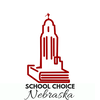
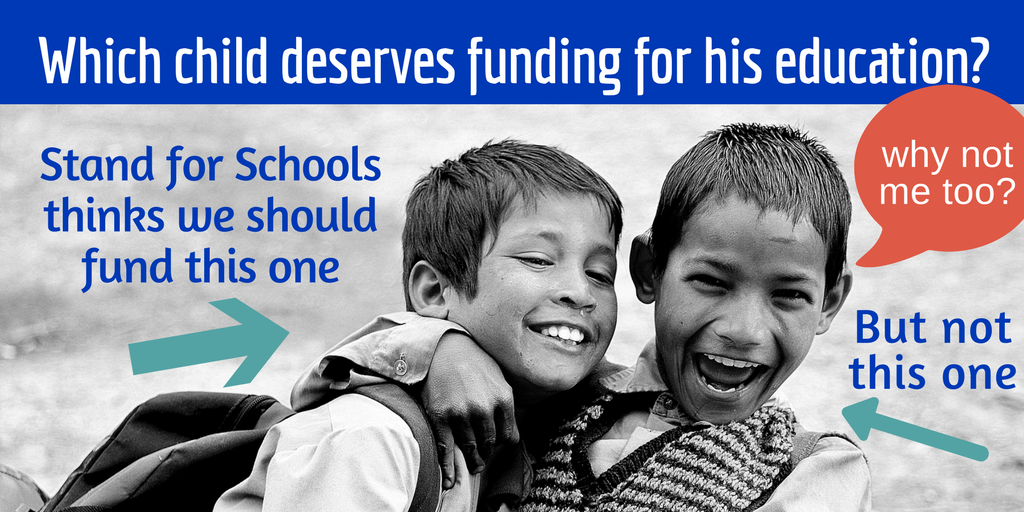
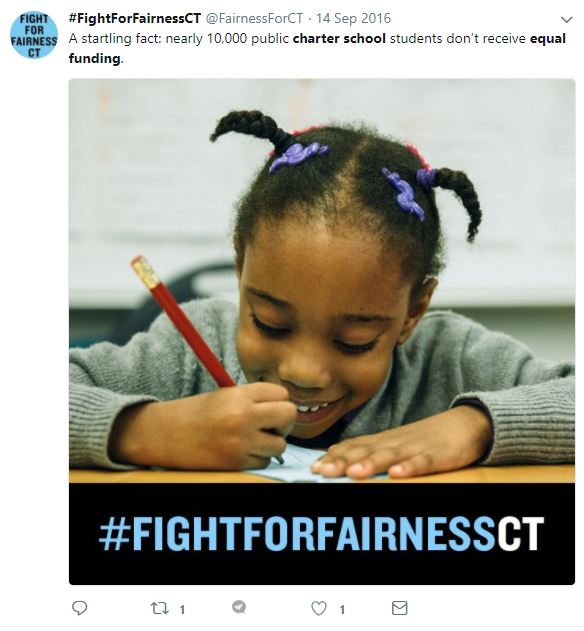
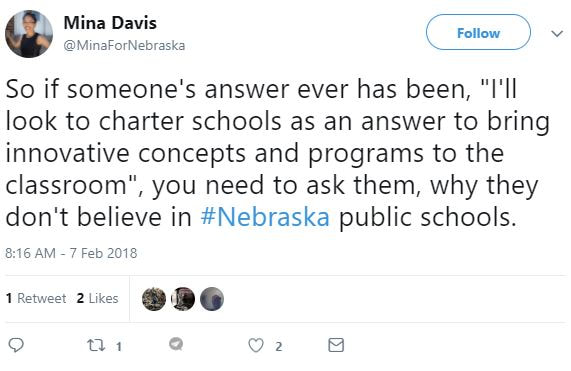
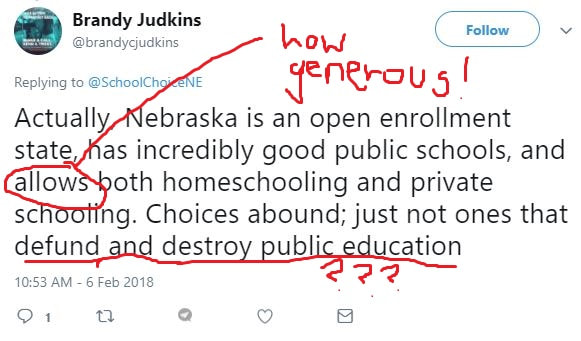
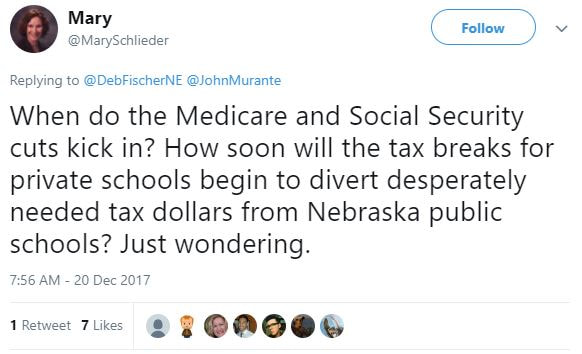
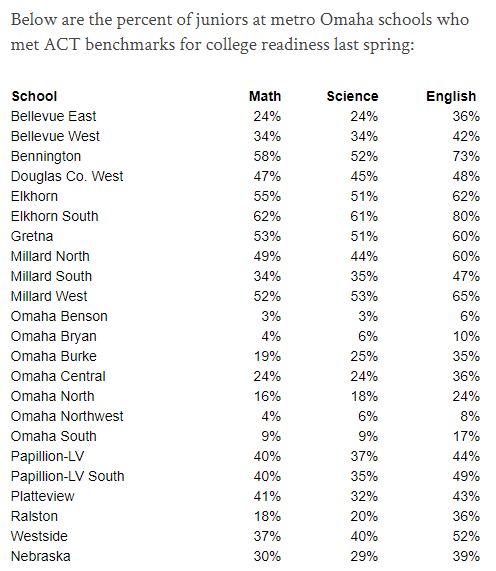
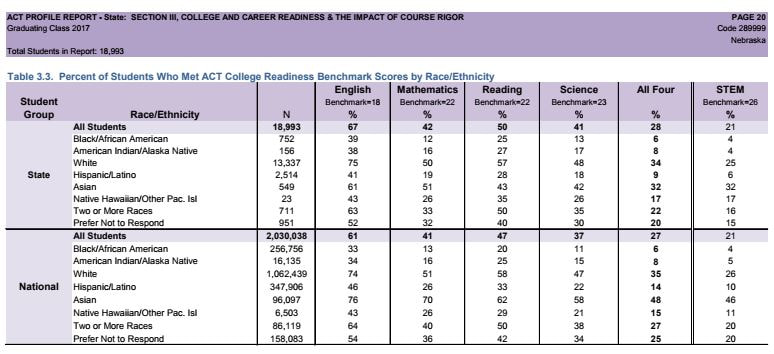
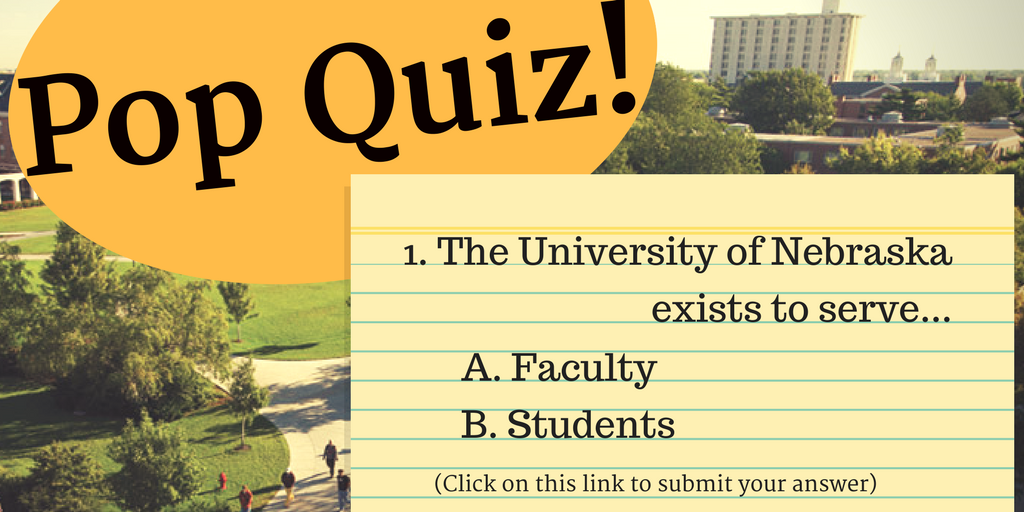
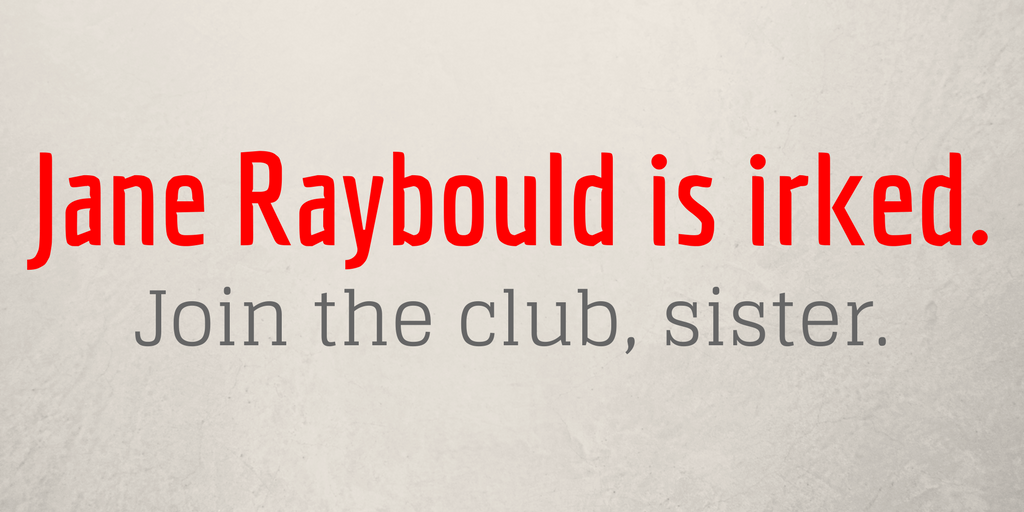
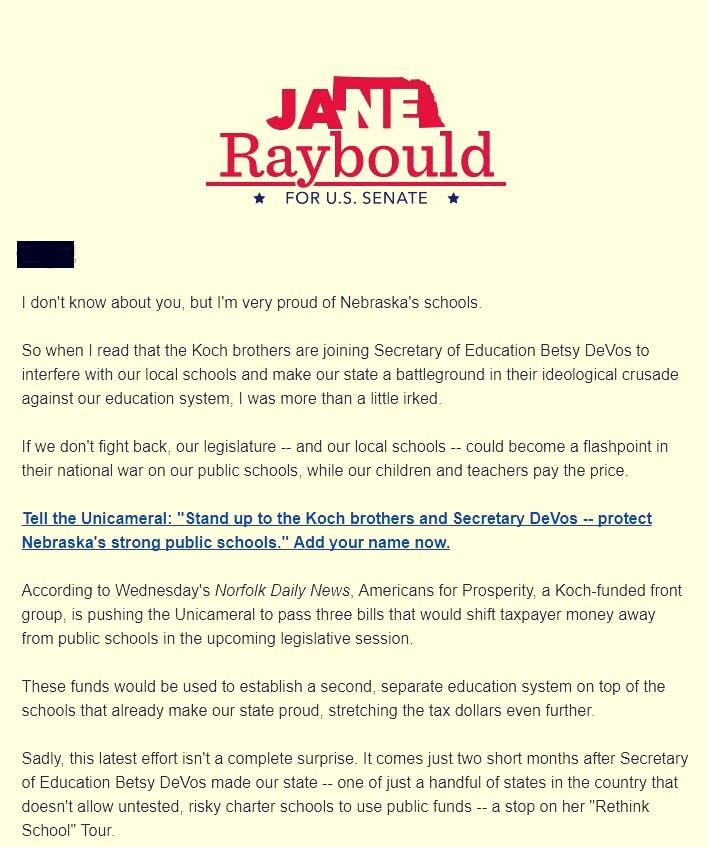
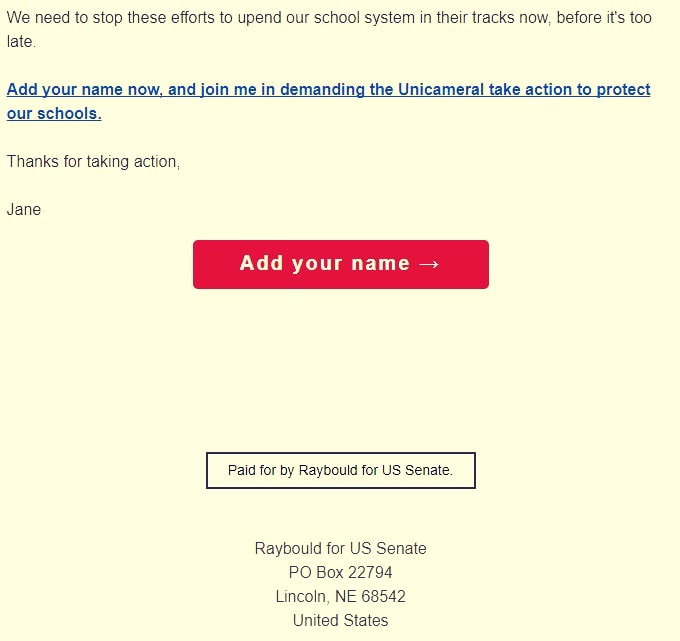
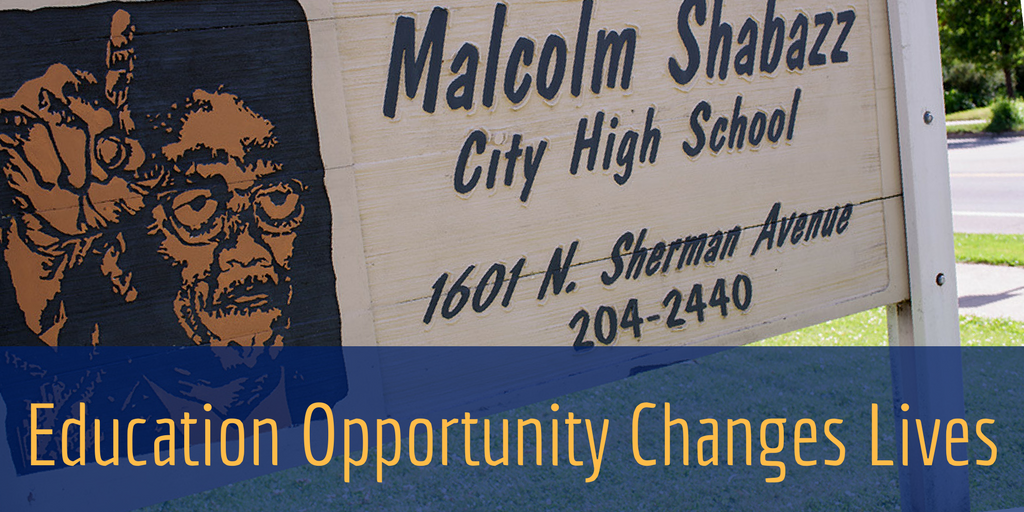

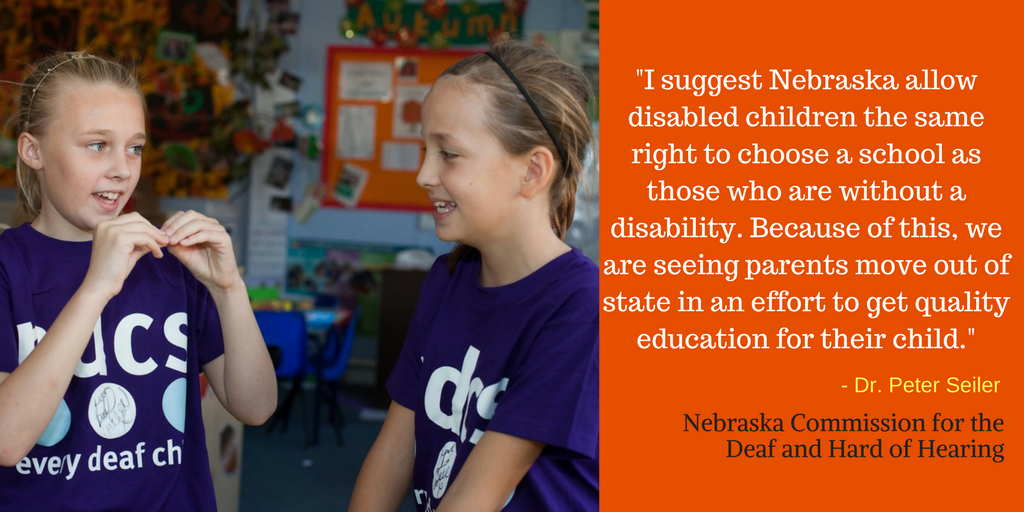
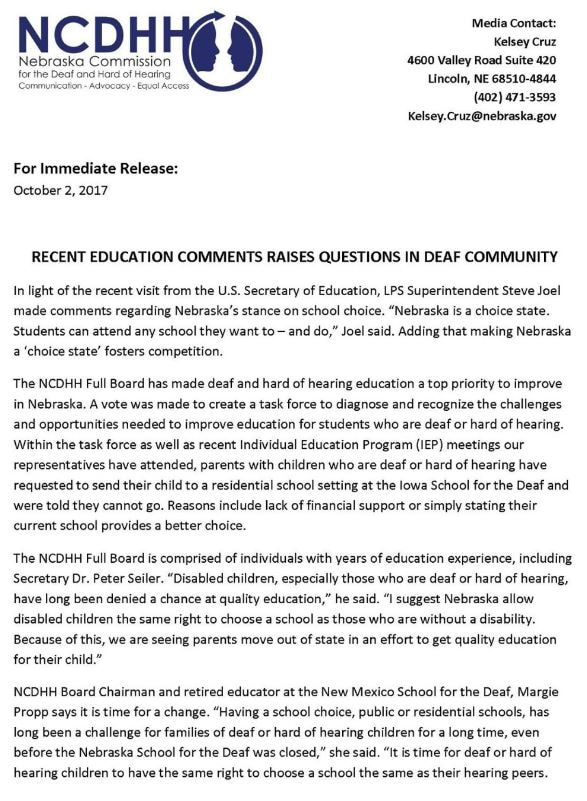
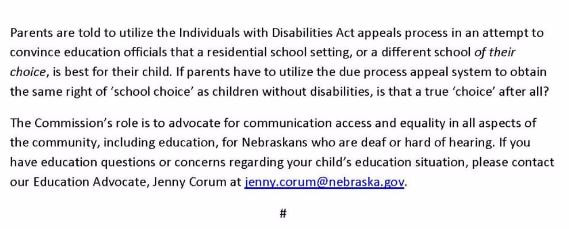


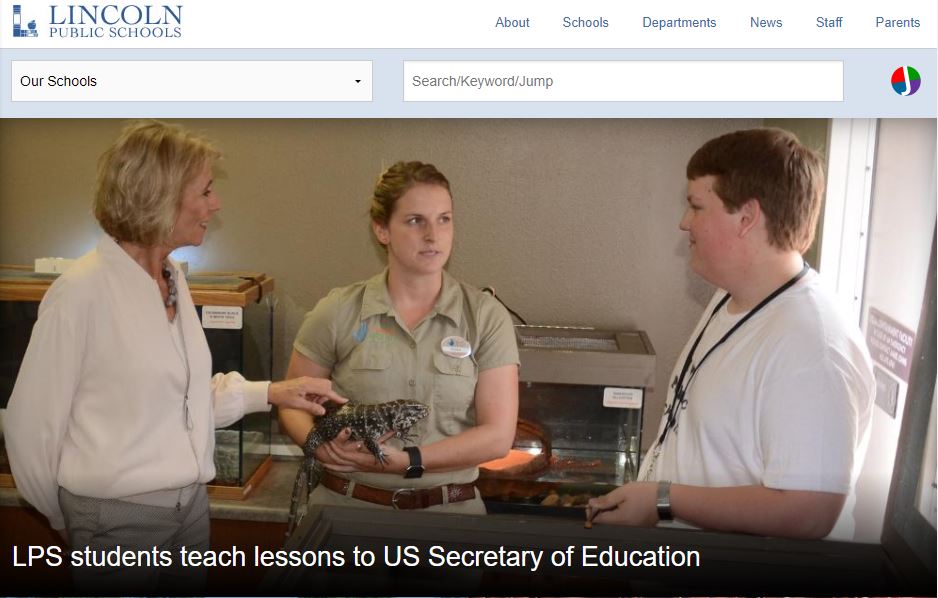
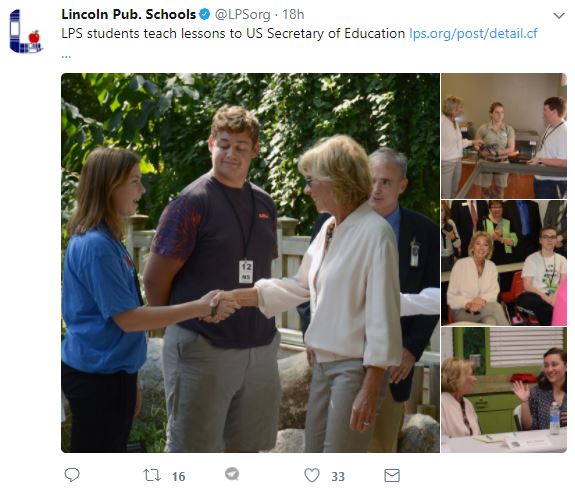
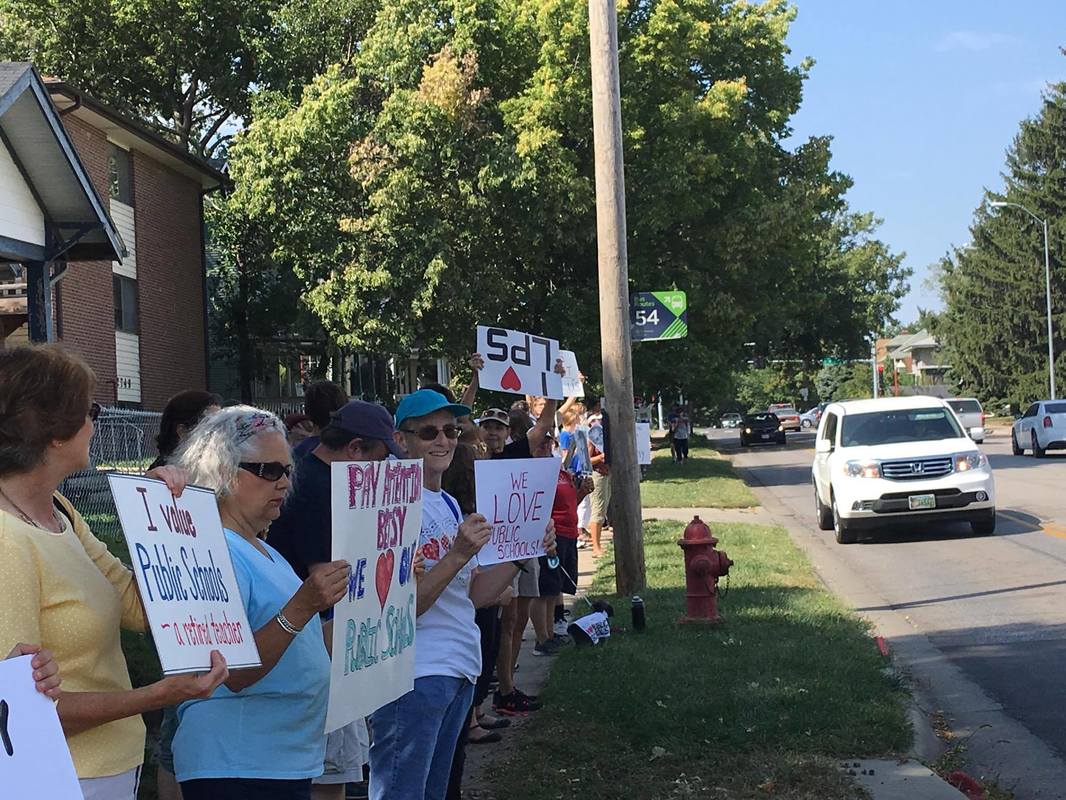
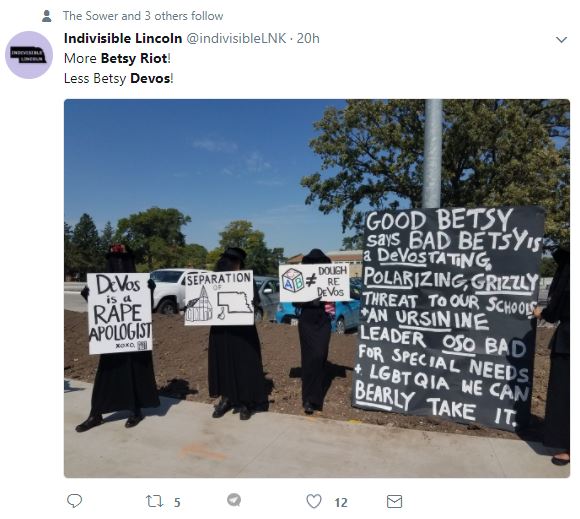
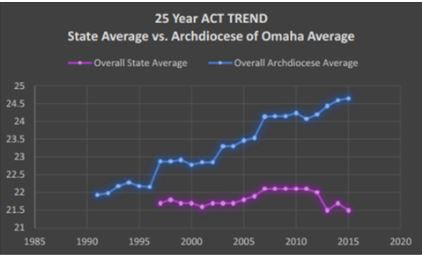
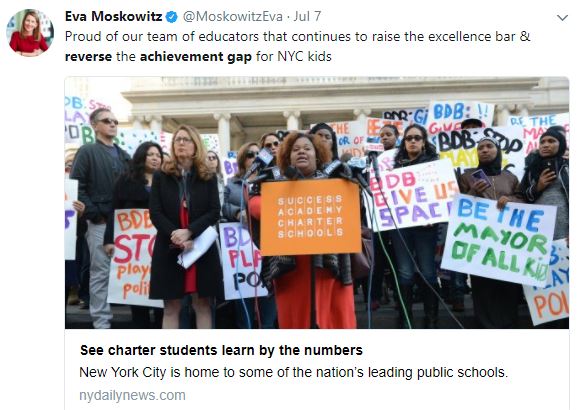

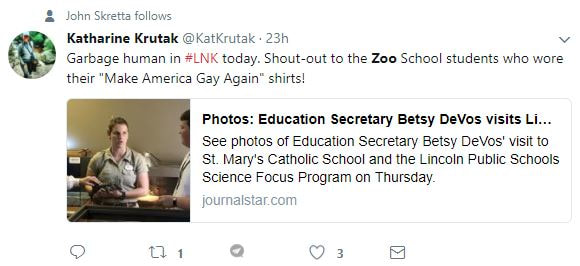

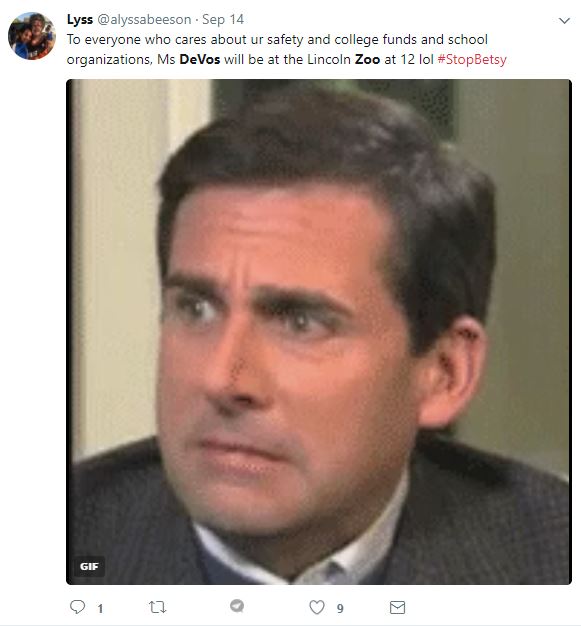
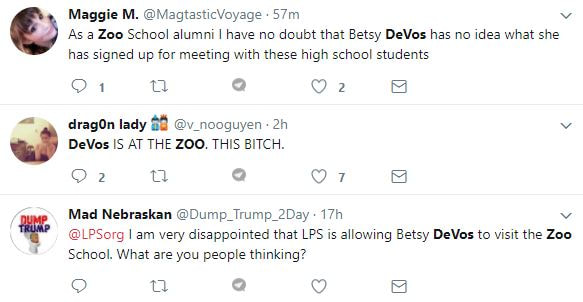
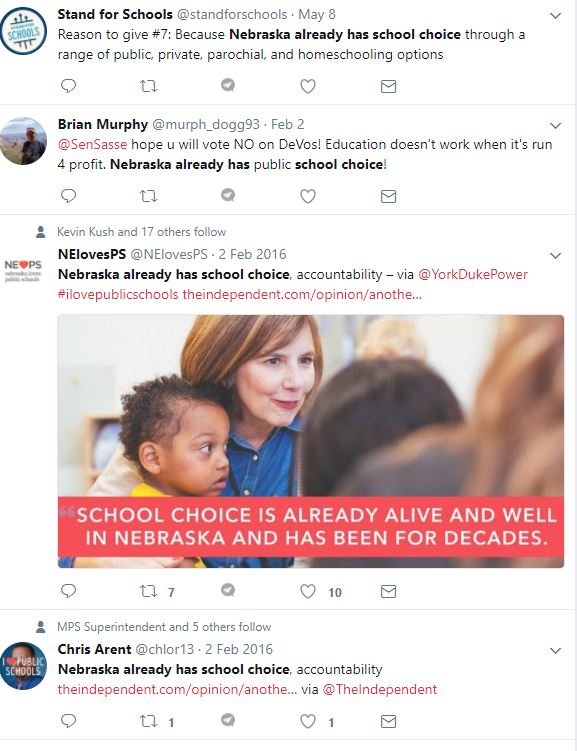
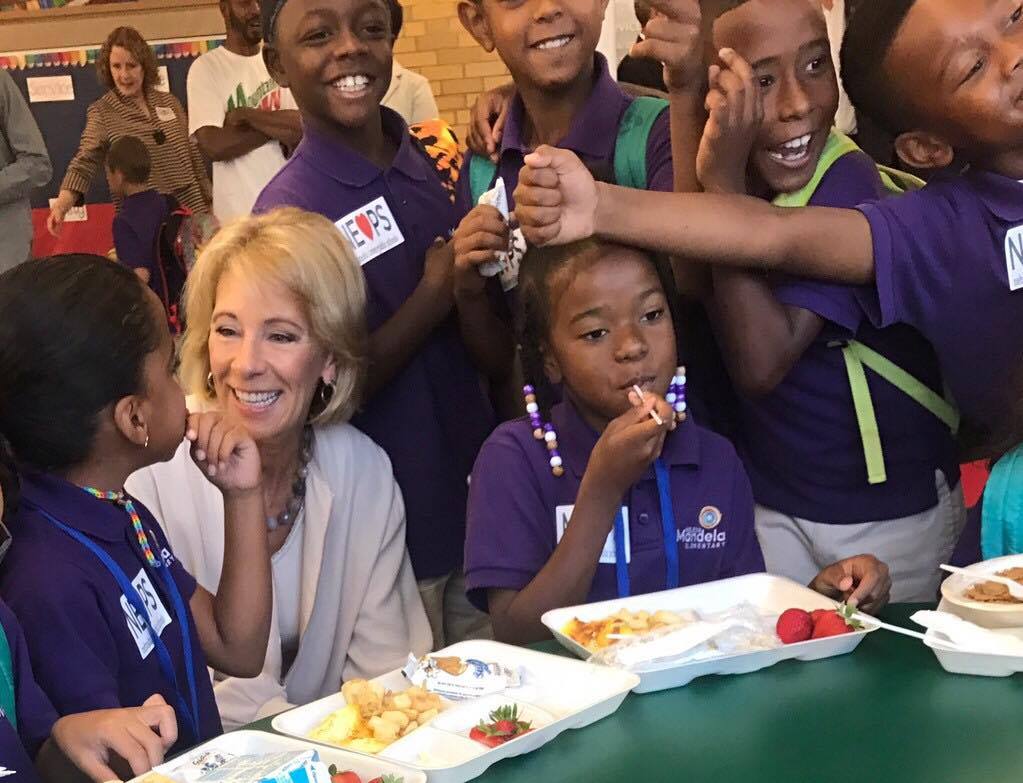
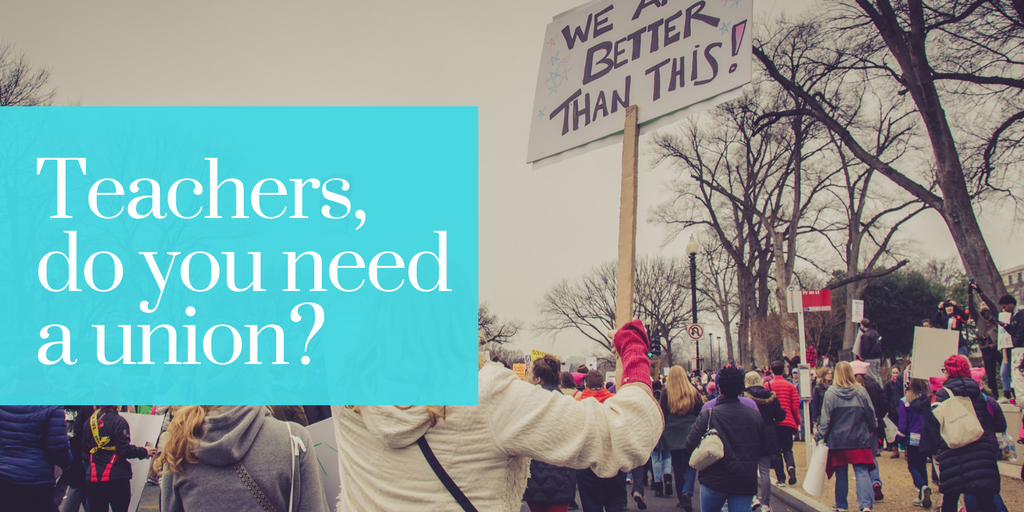
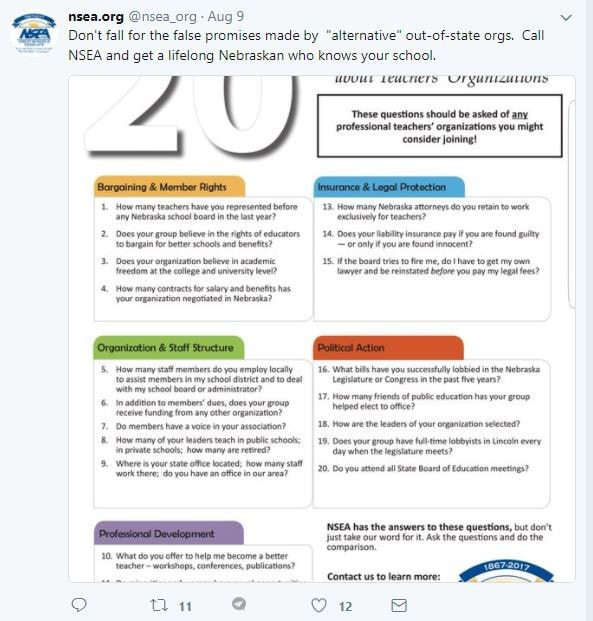
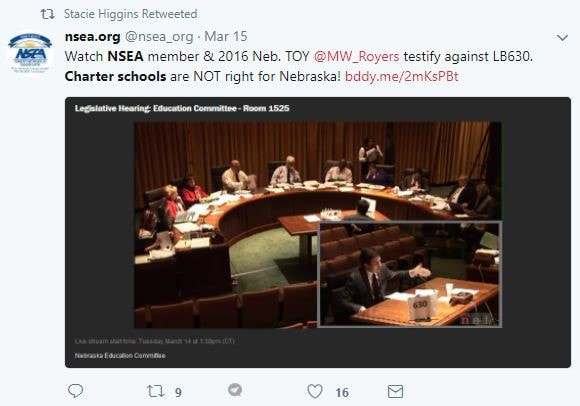

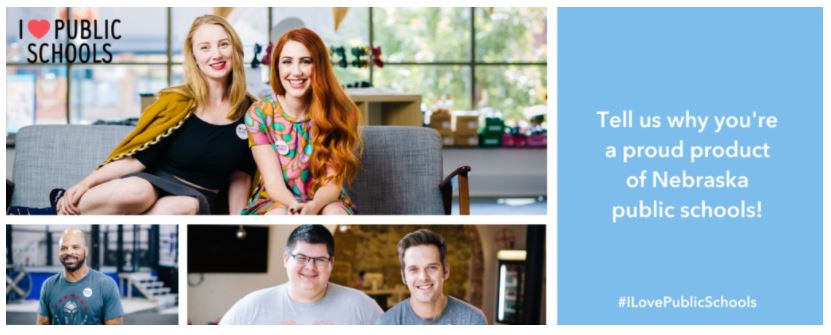
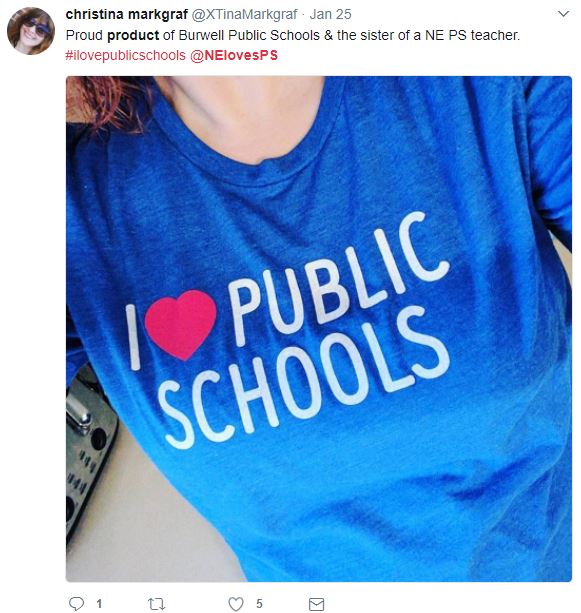
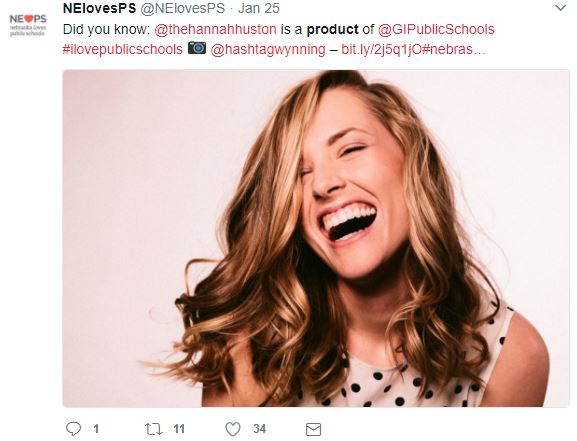
 RSS Feed
RSS Feed